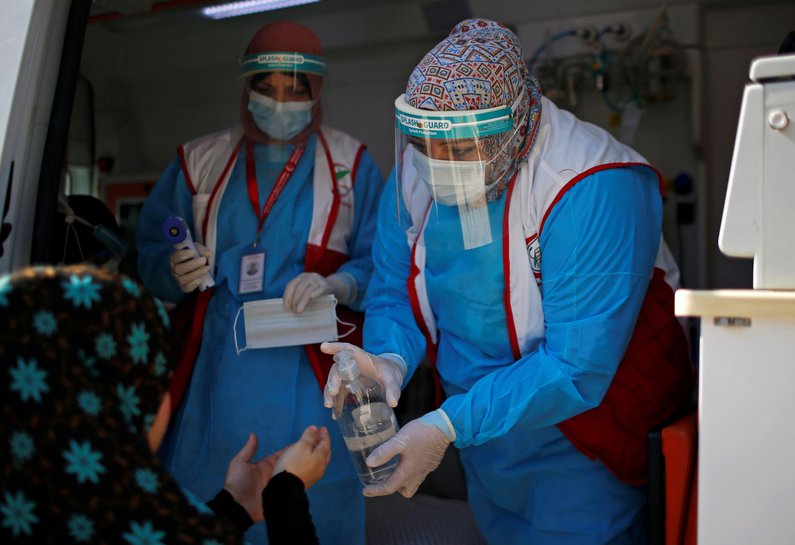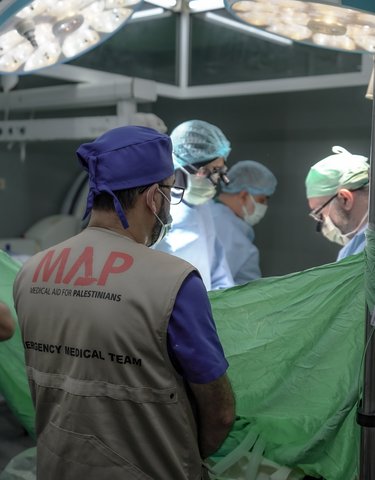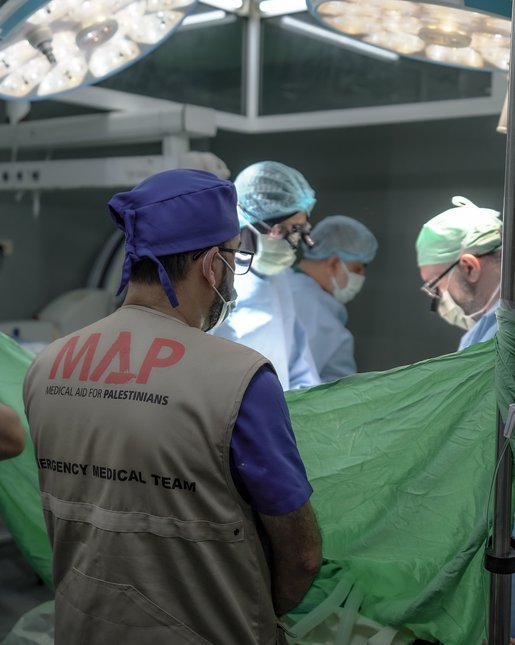Omicron surge threatens to overwhelm Gaza’s health services

On 26 January, 1,250 new cases of the virus were confirmed – a sharp increase compared to the 177 cases just seven days ago. The World Health Organization is warning that the peak of this fast-spreading Omicron surge is still to come.
“This is a very worrying development and healthcare workers are fearful that this new wave could overwhelm Gaza’s health services,” said Mahmoud Shalabi, Medical Aid for Palestinians (MAP)’s Senior Programme Manager in Gaza. “Low vaccination rates, and shortages of staff and equipment is likely to cause the virus to spread even more rapidly throughout one of the most densely-populated areas in the world.”
Low vaccination rates, and shortages of staff and equipment is likely to cause the virus to spread even more rapidly throughout one of the most densely-populated areas in the world.
According to the Palestinian Ministry of Health (MoH), 578,665 people in Gaza have had at least one dose of the vaccination – only about a quarter of the two million population. Unvaccinated people account for 92% of the current cases and 95% of deaths. Furthermore, all of the tragic cases of pregnant women who have died during this current wave were unvaccinated.
There are considerable efforts to increase vaccination uptake including seven primary health centres working evening shifts to provide services – which the MoH plans to increase to 19 in the near future – and non-governmental organisations providing vaccinations and testing facilities
But shortages of medical equipment and staff are proving a huge challenge to the response. This is largely caused by Israel’s illegal blockade and closure of Gaza, which has obstructed the entry of urgent diagnostic and medical resources including radiology devices, ventilators, supplies for X-ray machines and oxygen stations.
MAP calls on the international community to pressure Israel to end its fragmentation of Palestinian healthcare, including by permanently lifting its blockade and closure, and immediately ending restrictions on the movement of medical materials in and out of Gaza. As an occupying power, Israel must also ensure Palestinians in Gaza have rapid, equitable and comprehensive access to COVID-19 vaccines.
In the meantime, MAP is continuing to work with its partners in Gaza to provide essential supplies to hospitals including personal protect equipment, medicines and disposables to support the treatment of COVID-19 patients.
Please support MAP’s work during this latest COVID-19 surge in Gaza by making a donation today.
Read this story in Arabic here.
Photo: A Palestinian healthcare worker sanitises the hands of a woman at a mobile clinic in Gaza, 23 September 2020. (Credit: REUTERS/Suhaib Salem).
Related content




